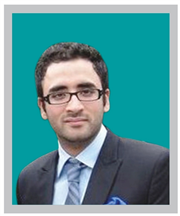
Mr Ankit Chawla
Trustee
Saroj Super Speciality Hospital, Rohini, Delhi
1.What is CORD?
In a first-of-its kind program, Saroj Super Speciality Hospital in association with leading voluntary groups MOHAN Foundation, ORGAN India and Fijeeha has jointly launched a campaign named as Organ Donation” (CORD), which aims to substantially increase the number of enrolments for organ donations besides working with Delhi Government to ensure speedy setting up of an organ donation registry in the city, amongst others.
“Overall the donor rate is very low, through CORD we target to enroll about 500% more live-donors through extensive use of conventional and social media, community mobilisation and participatory social movements. CORD will also submit a petition to Union HRD Ministry and Delhi Education Ministry urging them to make organ donation as part of school curriculum.
We want to become equally effective as any other big city in developed country when it comes to organ donations, both living and dead. An encouragement, counseling can motivate a million hearts and CORD intends to do precisely that. While globally there have been substantial shifts in attitudes towards organ donation, Delhi has lagged behind. One of the key objectives of CORD would be inclusion of organ donation in school curriculum and towards this we shall work with government and schools to sensitise and create awareness.
2. What are the key action points for CORD?
Advocacy for establishment of organ donation registry; Enrollment of three multi- organ donors per day; Advocacy for inclusion of organ donation in school curriculum; Creating network of youth influencers; Aggressive use of social media tools including Facebook and YouTube to drive sensitisation.
3. How does Delhi fare on organ donation? What are the key barriers?
Between 2012 and 2014 cadaver donors registered in Tamil Nadu was 350, 116 in Maharashtra, and 105 each in Kerala and Andhra Pradesh. The total organs retrieved were 1057, 276, 168 and 298 respectively, in these states. While India’s organ donation rate at 0.34 per million is among the lowest in the world, Delhi, despite having a high literacy rate fares poorly among states.
There are three key factors for the low rates of organ donations - cultural, legal and capacity. While lack of awareness and religious beliefs are two major cultural stumbling blocks, lack of adequate infrastructure and competent doctors limit our capacities. Laws are another hurdle and must be made simpler. We need massive public support to overcome the cultural deterrent, while government and private sector should get together to address the capacity issues.
4. How is Saroj Super Speciality Hospital equipped for organ transplant?
Saroj Super Speciality Hospital has recently launched a new state-of-the-art technology-driven multi-organ transplant centre , joining the elite group of very few hospitals in NCR to offer this high-end service. “Cost is another deterrent factor and at our Hospital we offer one of the most competitive packages across Delhi. We are a healthcare provider, par excellence, fast establishing itself as a global industry model in the tertiary healthcare system of India. Operating since December 1996, our 220+ bedded multi-super speciality hospital, located in the North West region of Delhi is well-equipped with latest technologies, and modern amenities. It has sophisticated medical diagnostic and therapeutic equipments like highly advanced Cath lab Units, Operation Theatres, Ultra fast Multi slice CT scan, Non-invasive cardiac lab and many other state-of-the art technologies for performing advanced laparoscopic surgeries. It provides comprehensive healthcare services through its Centres of Excellence and its various specialities. Saroj Super Speciality Hospital is accredited by NABH, NABL and ISO Certification and is on the panel of more than 100+ prestigious organisations including insurance companies and TPAs. www.sarojhospital.com
5. How will media play a role in this campaign?
Awareness using media will be one of the key and we are counting on the support of media and platforms like Fijeeha to spread the message. According to the World Health Organization (WHO), only about 0.01 percent in India donate their organs after death, while in Western countries around 70-80 percent of people pledge their organs. It is high time, we made a shift in our attitudes and media will play a vital role in bringing about this transformation.
|